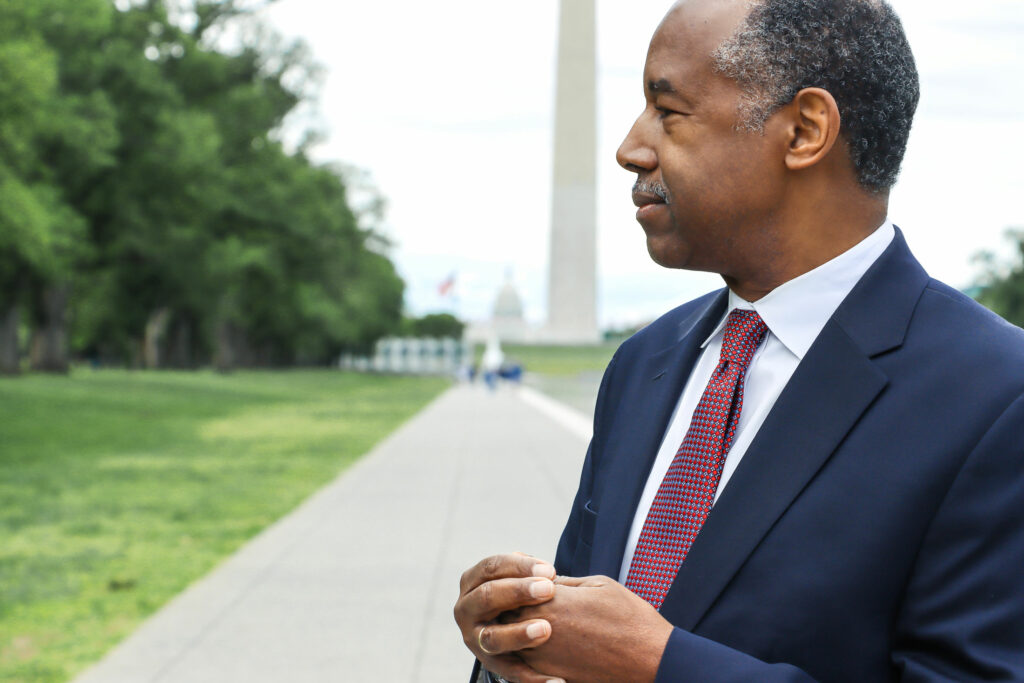 As things currently stand, the frontrunner for the Republican presidential nomination and favorite in general election polls is facing indictment under 91 different counts, 44 of which came from his potential opponent’s Department of Justice. President Trump’s other charges likewise come from outspoken Democrat District Attorneys, who were open about their intentions to investigate and indict him and his family from the start. In his campaign for District Attorney, for instance, Alvin Bragg boasted about his previous lawsuits and investigations into President Trump and his administration and ominously committed to holding President Trump “accountable” for alleged crimes he had not yet investigated.
As things currently stand, the frontrunner for the Republican presidential nomination and favorite in general election polls is facing indictment under 91 different counts, 44 of which came from his potential opponent’s Department of Justice. President Trump’s other charges likewise come from outspoken Democrat District Attorneys, who were open about their intentions to investigate and indict him and his family from the start. In his campaign for District Attorney, for instance, Alvin Bragg boasted about his previous lawsuits and investigations into President Trump and his administration and ominously committed to holding President Trump “accountable” for alleged crimes he had not yet investigated. All of this is shocking for several reasons, but first and foremost is the fact that we live in America—a free country where this sort of thing isn’t supposed to happen. In our country, elections are supposed to be decided by the people in a free and fair process, free from corruption and foul play. We expected such behavior in third-world nations such as Brazil, Burkina Faso, Tunisia, or Algeria, where opposition parties are routinely kept off the ballot. But here, in our own nation, it is a horrifying shock to see our supposedly impartial system of justice be weaponized by one political party to maintain power.
Such political prosecutions, even if they are all ultimately dropped, or the defendants are found not guilty, can still be enormously advantageous to the opposing party. For starters, when a political figure such as President Trump is investigated, a significant portion of the public will operate under the assumption that the person under investigation or indictment operated lawlessly, without any regard for America’s bedrock principle of “innocent until proven guilty”—in large part thanks to the bias of the media and their selective coverage of the indictments, all the while blacking out information on Hunter Biden’s alleged criminal activity. MSNBC, for example, mentioned Donald Trump seven times more often than Hunter Biden per month on average. Last year, CNN spent a peak of 24 minutes per day discussing Hunter Biden, compared to about 150 minutes talking about Donald Trump—mainly about his indictments.
Furthermore, such indictments remove President Trump from the campaign trail and force him to leave the American people to appear in courtrooms all across the country and spend vast amounts of money on legal fees that could otherwise go to campaign ads and outreach initiatives. These are significant disadvantages when running a presidential campaign, and these charges have essentially tied President Trump’s hands as we come upon the presidential election in November.
In light of these facts, it is alarming that all of the cases against President Trump began not when he first left office but when the presidential campaign season kicked off. It cannot be a coincidence that all four cases brought against President Trump happened in a relatively short period and lined up for a trial schedule that directly interfered with the campaign season and the general election. Even more disturbing is that many of these charges are grounded in novel, untested, and unprecedented legal theories. In New York, for instance, even ABC News has admitted that the charges hinge on a “novel legal theory”; in the federal Washington, D.C. case, the New York Times said that the case “relies on novel applications of law” and “ambiguous facts”; and CNN stated that the Georgia RICO case relies on “novel questions of law.” In this sense, prosecutors are “making the law fit the facts” rather than following the facts first and leading to whatever conclusions that may bring.
The next question becomes, “How does this end?” Many Americans rightly think now that this bridge has been crossed, Republican District Attorneys and Attorneys General should open investigations into Democratic officials and spark a sort of “arms race” on the indictment of political opposition. In the same way that the proliferation of nuclear weapons among adverse powers has helped deter their use, the potential for a sort of “tit for tat” prosecutions that could follow has even led many on the left to oppose the indictments against President Trump and his removal from the Colorado and Maine ballots, for fear of Republican District Attorneys and Secretaries of State doing the same. However, the current path chosen by radical Democrat District Attorneys is on track to lead us down a never-ending path of both parties weaponizing the justice system and trying to beat their political opponents in the courtrooms rather than at the ballot box.
This will further undermine the public’s confidence in our democratic system because the system will no longer function as intended. As people stop believing in the rule of law, they will be less apt to follow the law themselves. As the justice system is weaponized and political prosecutions are used to keep politicians off the ballots, people will feel more and more like their voice does not matter in American politics. And when people think that their votes do not count and they cannot make their voices heard, our system of government rests on very shaky grounds.
In brief, such politically charged indictments are an affront to our system of constitutional government and should be an outrage to any well-meaning American citizen. These naked political indictments represent a new low for our constitutional system, and Americans of all stripes should reject the politicized prosecution of political opponents.
